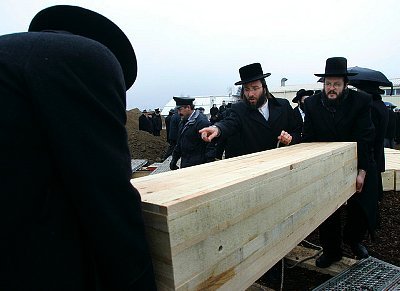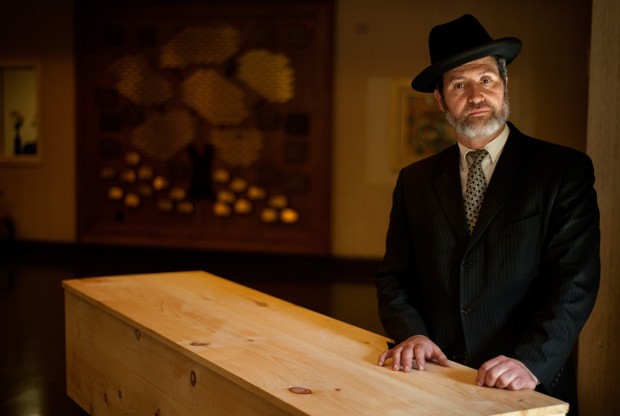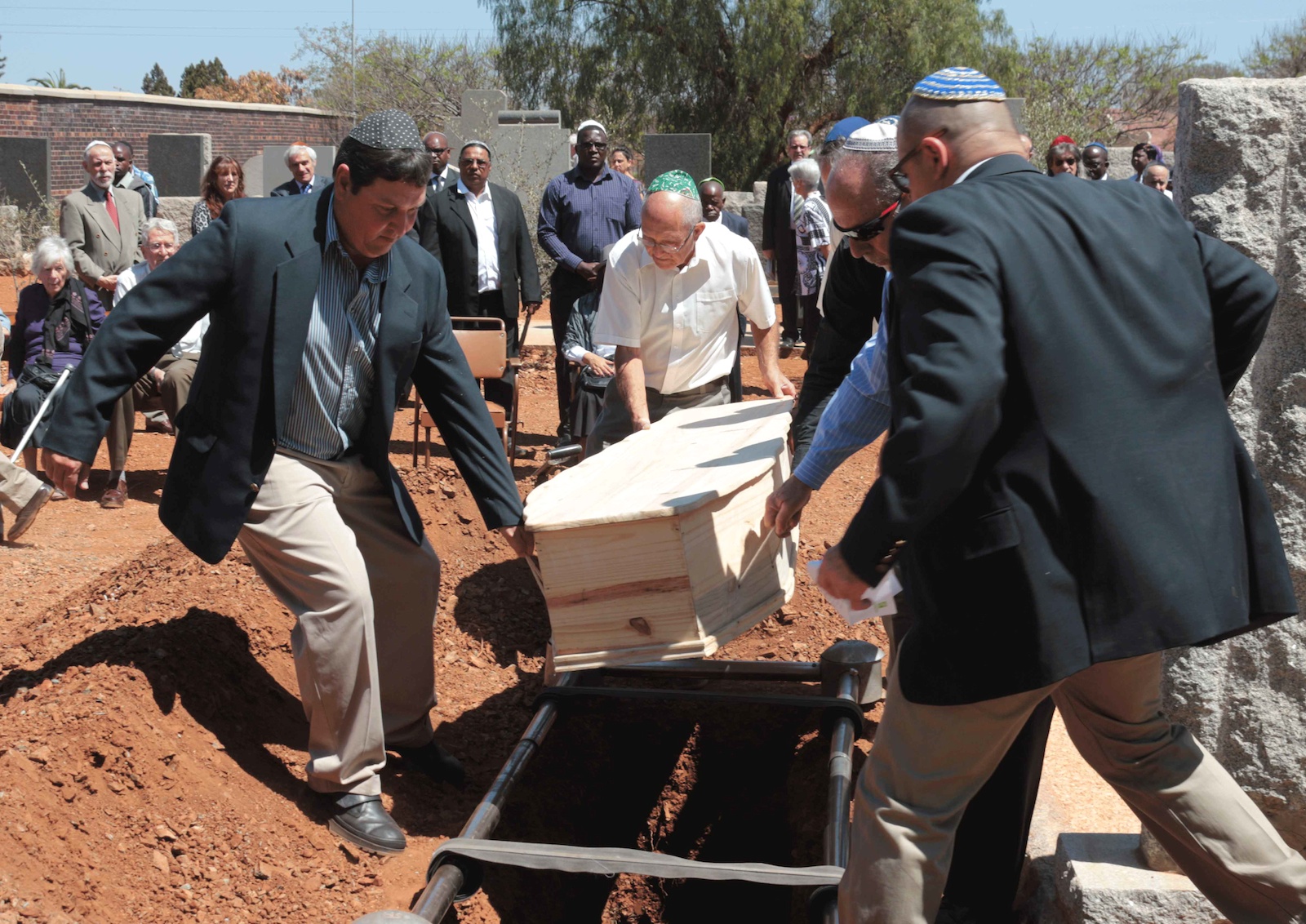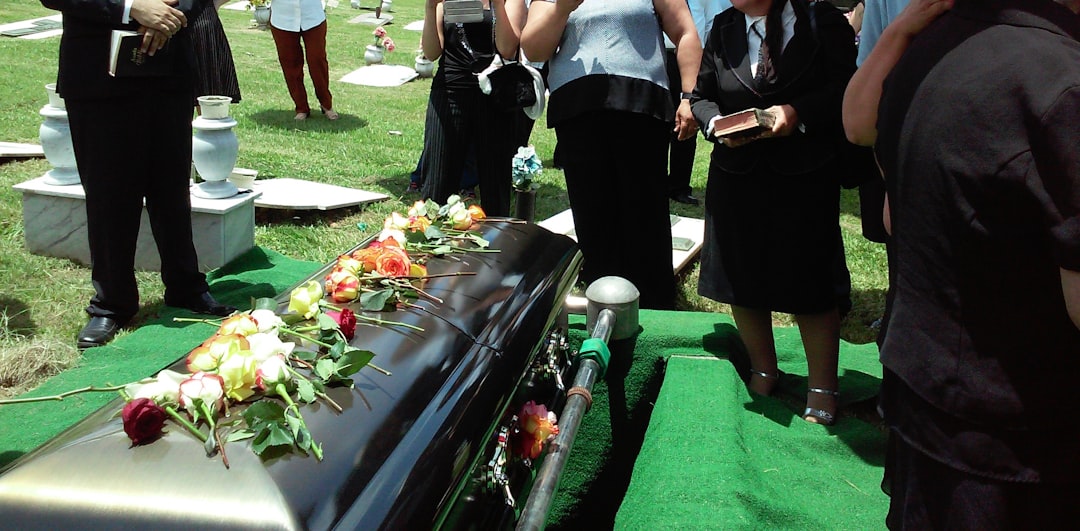jewish funeral customs open casket
Jewish funeral customs focus on respecting and protecting the feelings of the deceased. -Flowers should not be brought or sent to a Jewish funeral.
It is customary to make a donation in the name of the deceased to a worthy charity or.

. You will never see an open casket at Orthodox Jewish funerals. In order not to disturb the natural decomposition of the body the coffin is made of simple wood. It is not the Jewish custom to send or bring flowers to a funeral or cemetery for flowers are associated with joyous celebrations.
Jewish funeral customs during the service. Jewish Burial Customs A few notable Jewish burial traditions affect the planning and coordination when laying a loved one to rest. Of cause our days are not all the.
Jewish funerals are typically closed casket occasions. Bodies arent to be embalmed and the casket is rarely opened again once its closed. Additionally one way to ensure a proper Jewish burial is to contact a Jewish funeral home andor Rabbi to make the arrangements earlier.
Here are a few common Jewish burial customs and Jewish death rituals. Judaism takes seriously the injunction in Torah that Dust you are to dust you shall return Gen 319 Additionally we believe that we are created btzelem Elohim in the image of God. For some families that may mean strictly adhering to Jewish funeral customs.
Most traditional funerals do not have flowers as this is considered an unnecessary and frivolous adornment. For others adding personal touchessmall or largecan bring added. Its very rare for Jewish funerals to have an open casket.
At the funeral when the casket is lowered into the grave Jewish funeral etiquette dictates that family members will be asked to each help fill the grave with dirt. Or talk to a family services counselor Available 247. Jewish funeral customs focus on respecting and protecting the feelings of the deceased.
Traditional Jewish funerals do not have open caskets so the embroidery serves solely as a special touch from the family to their deceased loved ones. For the same reason music is not played or sung. Most traditional funerals do not have flowers as this is considered an unnecessary and frivolous adornment.
When the Mourner is a Kohen. The traditional Jewish tradition does not allow the use of open caskets and cremations. This matter is subject to the wishes of the deceased and his or her immediate family members and the customs of the congregation.
This is considered extremely disrespectful to the deceased. While some cultures really value this final opportunity to see the deceased its seen as disrespectful in Judaism. The body is washed and placed in a simple coffin.
The body is dressed plainly in white and jewelry is not worn. It is unacceptable for the casket to be open in Jewish traditions. A yarmulke-covered jacket and tie is required for men attending a funeral.
-There will be no open casket as per Jewish custom. Learn about our wide range of funeral options. However a casket is mandatory in many western countries where Jews retain the spirit of the original tradition by.
No visitation takes place. The Jewish tradition does not generally accept open caskets or cremations. Guests are wearing jackets and yarmulkes which are available at the funeral home or synagogue as head covering.
In other cultures viewing the body may be importantto give a sense of closure to mourners. Open caskets are not permitted at Jewish funerals. Family and friends are not allowed to see the person before burial.
Embalming is never used and open casket burial isnt approved of either. Therefore viewing the body is considered disrespectful of the dead and the casket Oron is not opened during a funeral service. Because of that the casket needs to be ordered ahead of time or using overnight caskets delivery provided by Trusted Caskets.
An open casket or cremation is not generally accepted in the Jewish tradition. This may include cosmetics manipulations and even embalming. Open Casket at Funerals In general all traditional Jewish funeral homes are well aware of the importance of a quick and proper Jewish burial and a equipped to handle it even on a days notice.
Due to traditions and religion the burial should be done 24 hours after the death. A casket must not be made of a material such as metal that slows down the bodys natural return to the elements. A Jewish funeral service differs from other funerals you may have attended in some key ways.
Begin making arrangements online. For this reason embalming is prohibited. Male guests are expected to wear a jacket and tie with a yarmulke as a head covering which is available at the funeral home or synagogue.
Do Jewish Funerals Have Open Casket. Visiting with and viewing of the remains open casket are contrary to Jewish law. In Jewish culture public viewing of the dead person is too one-sided and seems like a violation of the dead persons modesty.
We can look at the body but the person cant look back. Taharah Ta-ha-rah the traditional washing and dressing of the deceased with dignity. Therefore viewing the body is considered disrespectful of the dead and the casket Oron is not opened during a funeral service.
A traditional Jewish funeral is generally simple and very brief and is held only a day after the death has occured. To have an open casket usually the mortician must do something to the body to make it presentable. It is also forbidden to hold an open casket viewing.
After a funeral it is common practice for a Jewish family to sit shiva for seven days. Ad Proudly serving all faiths and traditions. In Jewish tradition there is no viewing or open-casket portion of the event.
The dress and behavior of family and friends should reflect the dignity and solemnity of the occasion. Jewish funerals typically are conducted in a synagogue or a funeral home and are led by a rabbi. To honor the deceased the casket remains closed with friends and family prohibited from seeing the person who has passed.
It is put in a simple wood coffin to prevent decomposition from being prolonged. Most traditional funerals do not have flowers as this is considered an unnecessary and frivolous adornment. Women wear conservative apparel a skirt or dress of somber colors but they are not expected to wear a head covering.
-During the funeral and services men may be asked to wear a skull cap yarmulke. Therefore viewing the body is considered disrespectful of the dead and the casket Oron is not opened during a funeral service. Jewish funeral customs focus on respecting and protecting the feelings of the deceased.
However in some Messianic congregations where Christian traditions are more prevalent the casket is left open. Aron A-rone the burial casket. It is generally not acceptable to have an open casket at the funeral or for cremation to take place.

Coffin Vs Casket What Is The Difference Casket Mason Jar Fairy Lights Funeral Costs

Closed Caskets At Jewish Funerals Jewishboston

Jewish Funeral Traditions 15 Important Things You Need To Know

Pin On Post Mortem Photography Ancient Vintage

Jewish Traditions For Death Burial And Mourning Rohatyn Jewish Heritage

Funeral Flower Etiquette How To Send Flowers In 2020

Open Casket Vs A Closed Casket Funeral The Fundamental Information T Trusted Caskets

Awesome 21 Funeral Flowers From Interflora Https Ideacoration Co 2017 11 16 21 Funeral Flowers In Casket Flowers Memorial Flowers Funeral Flower Arrangements

10 Tips For Attending A Jewish Funeral Unusual Headstones Funeral Etiquette Jewish

Complete Guide To Jewish Orthodox Burial Rituals And Caskets Trusted Caskets

Unforgettable Movie Funeral Scenes Gallery Wonderwall Com

Open Casket Funerals Common Questions Answered Lovetoknow







